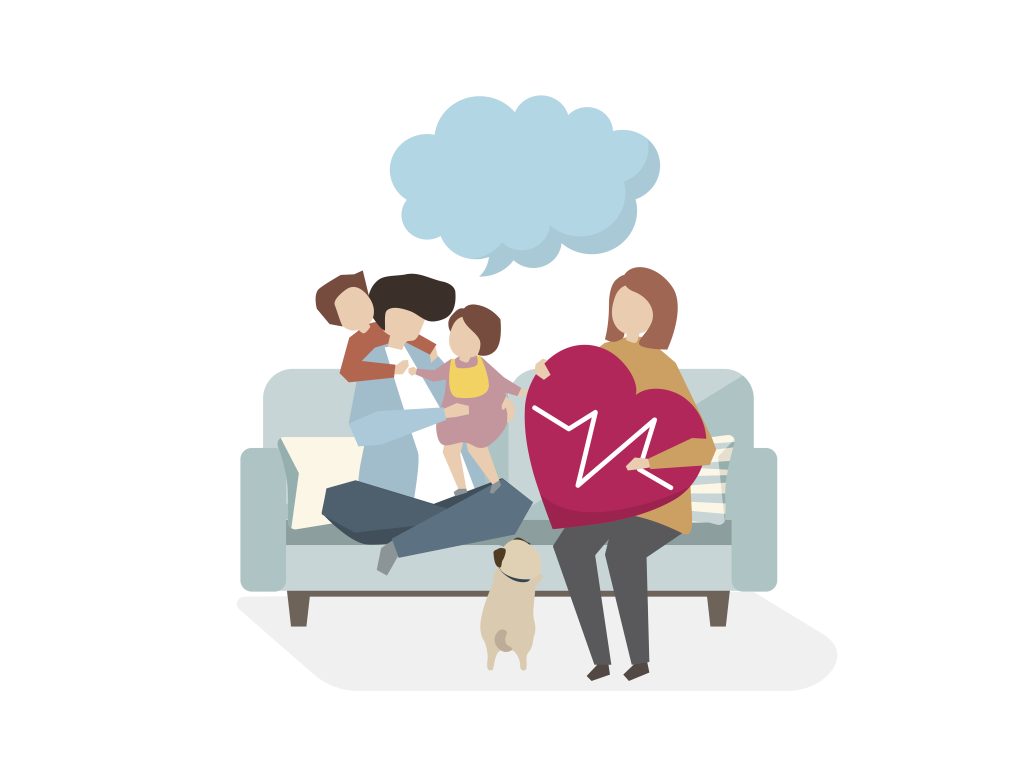As parents, one of the most important and potentially anxiety-inducing conversations we face is talking to our child about sex. Even though “the talk” can evoke awkwardness, uncertainty, and answering a lot of questions of curious little minds, it is important to have an age appropriate discussion about sex with your children. No pressure, but parents play an essential role in shaping their child’s attitude towards sex and relationships. A non-judgemental and comfortable setting is the first step to having an open conversation. It is important to find reliable sources, explaining good touch and bad touch, and adapting age-appropriate conversations.
- Finding the correct sources
The internet can be a jungle of information! It can be filled with misinformation and inappropriate content. It is crucial to find trustworthy sources and hence, it is important to look for websites from well-known organisations. There are plenty like the World Health Organization, Planned Parenthood, etc.
A tip – be approachable, open-minded and non-judgemental. Children have the tendency to ask a lot of questions so it is important to create a safe space for them and show that you’ve got their back when it comes to SRH topic.
- Talking about Sexual Reproductive Health in different phases:
- i) Early childhood (Ages 3-6)
Introducing the concept of sexual health and body awareness in this phase is very crucial. You can keep the discussions light, simple and age-appropriate and simply focus on building a bond with your child as these discussions lay the foundation to more in-depth conversations in the future.
Start by teaching your child the body anatomy. Using correct anatomical terms like “Vagina,” “breasts,” “penis” promotes a healthy understanding and removes the stigma associated while discussing these parts. Explain to them what good touch and bad touch is and teach them about privacy and boundaries, emphasising that it is okay to say ‘NO.’ Make sure they feel safe and heard!
- ii) Middle Childhood (Ages 7-12)
Ah the age of physical and emotional growth! Imagine waking up one day, looking completely different, feeling completely different. The thought scares us but we have all been through it, and so will your child. It is important to answer all their questions, acknowledge their curiosity and explain to them about puberty and emotional changes.
You don’t have to deep dive into the sex talk just yet but it is crucial to address gender differences and personal hygiene. Reinforcing good touch and bad touch also helps.
A tip – Respect their privacy. There are changes happening internally and externally and some children might feel shy and embarrassed to talk about it. Give them time to process everything and remind them that they have a judgement free zone where they can open up.
iii) Adolescents (Age 13+)
Hormones are buzzing, emotions are soaring, and life feels like one big adventure! That’s exactly what adolescence is and as your child steps into this stage, they might be curious to know more about relationships, sex and everything in between. You can explain to them the act of sex; some parents even rely on diagrams and videos to make the process interesting. However, it is also crucial to educate your child about consent, contraception and the risk of STIs.
Emphasise on “No Means No” and encourage them to learn more about contraceptive choices so that they don’t come across any unplanned surprises or risk their health. Keep it real and have a non-judgemental approach. With this, you will make them more confident and self-aware.

In conclusion, talking about sexual reproductive health with your child can be a bit difficult, but remember, it is all about open communication, trust and understanding. Empowering your child to make informed choices can help them have healthy relationships and navigate their adulthood confidently!



